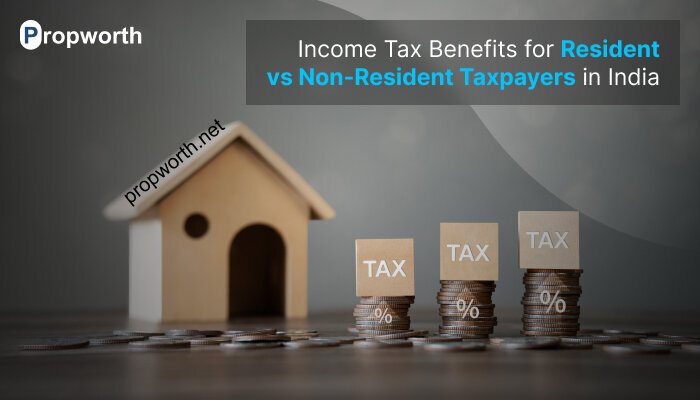What is a CIBIL Score?
A CIBIL score is a credit score generated by CIBIL based on an individual’s credit history. It’s a numerical representation of your credit behavior, payment history, and credit utilization. The score ranges from 300 to 900, with higher scores indicating good credit behavior and lower scores suggesting poor credit habits. A higher score means you’re more likely to get loans or credit cards easily and at better interest rates.
A company called CIBIL (Credit Information Bureau India Limited) calculates your score. They collect information about your loans, credit cards, and how you’ve repaid them from banks and other financial institutions.
How is CIBIL Score Calculated? A Detailed Explanation
CIBIL score calculation is a complex process that involves multiple factors and a proprietary algorithm. Here’s a step-by-step explanation of how CIBIL calculates your credit score:
Step 1: Data Collection
CIBIL collects data from various sources, including:
- Banks: Commercial banks, public sector banks, and private sector banks.
- NBFCs: Non-Banking Financial Companies, such as finance companies and housing finance companies.
- Credit Card Companies: Companies issuing credit cards.
- Other Lenders: Other financial institutions, such as co-operative banks and microfinance institutions.
The data collected includes:
- Loan accounts: Details of loans, including type, amount, and repayment history.
- Credit card accounts: Details of credit card usage, limits, and repayment history.
- Credit inquiries: Records of credit applications and inquiries.
- Public records: Information from public sources, such as court judgments and bankruptcy filings.
Step 2: Data Analysis
CIBIL analyzes the collected data to identify patterns and trends in your credit behavior. This includes:
- Payment history analysis: Evaluating your repayment history, including late payments, defaults, and settlements.
- Credit utilization analysis: Assessing your credit limit usage, including high credit utilization and credit limit increases.
- Credit age analysis: Evaluating the age of your credit accounts, including new accounts and old accounts.
- Credit mix analysis: Assessing the diversity of your credit portfolio, including different credit types and lenders.
Step 3: Score Calculation
CIBIL uses a proprietary algorithm to calculate your credit score based on the analyzed data. The algorithm assigns weights to each factor, which are then used to calculate the score.
Weightage Allocation:
- Payment History: 35%
- Credit Utilization: 30%
- Credit Age: 15%
- Credit Mix: 10%
- New Credit: 10%
Score Calculation Formula:
The exact formula is not publicly disclosed, but it’s a combination of the weighted factors. For example:
CIBIL Score = (0.35 x Payment History) + (0.30 x Credit Utilization) + (0.15 x Credit Age) + (0.10 x Credit Mix) + (0.10 x New Credit)
Step 4: Score Generation
The final score is generated based on the calculation, ranging from 300 to 900. The score is then categorized into different ranges, indicating your creditworthiness.
CIBIL Score Ranges:
- 300-549: Poor credit score
- 550-649: Average credit score
- 650-749: Good credit score
- 750-900: Excellent credit score
CIBIL score calculation is a complex process that involves multiple factors and a proprietary algorithm. Understanding how your credit score is calculated can help you take control of your credit health and make informed decisions to improve your creditworthiness.
What Affects Your CIBIL Score?
Several factors go into calculating your CIBIL score. Let’s break them down:
1. Payment History (35%)
This is the most important factor. It shows how well you’ve paid back your loans and credit card bills on time.
- Good: Paying on time, every time.
- Bad: Missing payments or paying late.
2. Credit Utilization (30%)
This is about how much of your available credit you’re using.
- Good: Keeping your credit card balance low compared to your credit limit.
- Bad: Using most of your credit limit.
3. Credit History Length (15%)
The longer your credit history, the better. It shows you’ve been managing credit responsibly for a while.
- Good: Having old credit accounts with a good payment history.
- Bad: Having a short credit history.
4. Credit Mix (10%)
Having a mix of different types of credit (like loans and credit cards) can help your score.
- Good: Having a mix of credit cards, personal loans, and home loans.
- Bad: Having only one type of credit.
5. New Credit (10%)
Applying for too many loans or credit cards in a short time can lower your score.
- Good: Limiting new credit applications.
- Bad: Applying for multiple loans or credit cards at once.
Understanding Your CIBIL Score Range
- 300-549: Poor credit score, may face difficulties in getting loans.
- 550-649: Average credit score, may get loans but with higher interest rates.
- 650-749: Good credit score, eligible for loans with competitive interest rates.
- 750-900: Excellent credit score, best interest rates and loan terms.
How Can You Improve Your CIBIL Score?
Here are some tips to boost your CIBIL score:
- Pay Your Bills On Time: This is the most important thing. Make sure to pay all your bills, including credit card bills, loan EMIs, and utility bills, on time.
- Keep Credit Utilization Low: Try to use only 30% of your available credit. For example, if your credit card limit is Rs. 50,000, try to keep your balance below Rs. 15,000.
- Don’t Close Old Accounts: Keeping old credit accounts open can help your credit history length.
- Check Your Credit Report: You can get a copy of your credit report from CIBIL. Check it for errors and dispute any incorrect information.
- Limit New Credit Applications: Applying for too many loans or credit cards in a short time can lower your score.
- Build a Good Credit Mix: Have a mix of different types of credit, like a home loan, car loan, and credit card.
Common Myths About CIBIL Score
- Myth: Paying off your credit card completely every month will hurt your score.
- Fact: While it’s good to pay off your credit card balance, it won’t harm your score.
- Myth: You need to have a lot of credit cards to improve your score.
- Fact: The number of credit cards doesn’t matter as much as how you use them.
- Myth: Once a low score, always a low score.
- Fact: With responsible credit management, you can improve your score over time.
Remember: Your CIBIL score is a snapshot of your financial health. Treating it well can open doors to better financial opportunities.
Additional Tips:
- Build a Good Credit History Early: Start using credit responsibly when you’re young.
- Monitor Your Credit Report: Check your credit report regularly for errors or unauthorized activity.
- Be Cautious With Co-signed Loans: If you co-sign a loan, the borrower’s payment history will affect your score.
- Understand Your Credit Utilization Ratio: Aim to keep your credit utilization below 30%.
Conclusion
Understanding how your CIBIL score is calculated can help you take control of your credit health. By maintaining good credit habits and monitoring your credit report, you can improve your CIBIL score and enjoy better financial opportunities. Remember, a good CIBIL score is key to unlocking competitive interest rates and loan terms.











